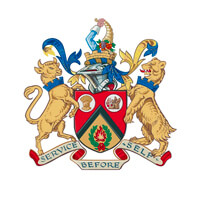fees waived
Paramedic Science, BSc (Hons)
University College Birmingham, United Kingdom
Costs
food & rentS$17K / year
Entry requirements
Scholarships
Limited quantity
Information
Code
Intakes
Website (External)
Programmes
Information
Duration
2028
Course summary
OVERVIEWOur BSc in Paramedic Science is an innovative degree where you will learn the underpinning paramedic knowledge, skills, values and behaviours fundamental to professional paramedic practice. Crucially, it gives graduates eligibility to apply for registration as a paramedic with the Health and Care Professions Council (HCPC) and enter the workforce as a registered Allied Health Professional.UK paramedics have diverse roles, including responding to emergency calls, providing pre-hospital care and performing medical procedures such as administering medications, intubation and defibrillation. And not all qualified paramedics wear green. They work in many other areas of healthcare, including primary care in general practice and out in the community, as well as in education. With training in our cutting-edge simulation facilities, the course will enable you to deliver safe and proficient paramedic care across diverse settings. Through immersive and simulation-driven learning, you will actively engage in your educational journey, while the course's pedagogical approach facilitates the practical application of theoretical concepts to solidify your comprehension of paramedic science. In addition to medical expertise, you will gain advanced abilities in communication, teamwork, clinical decision making and the factors that impact healthcare, while our curriculum explores paramedic care methodologies from around the world. The course is also seeking accreditation by the College of Paramedics.WHY CHOOSE THIS COURSE?-PRACTICE PLACEMENTS – Gain practical experience on multiple placements with ambulance services and clinical practice areas and in community settings-PRACTICAL APPLICATION – Perfect your practical skills on campus in our Health Skills and Simulation Suite, with state-of-the-art simulation facilities including a replica hospital ward. Students will also have access to a simbulance - a fully functioning ambulance capable of recording various training scenarios -MULTI-DISCIPLINARY APPROACH – Access to the University's prosthetics team and their skills in replicating injuries for a realistic approach to patient care -AWARD-WINNING UNIVERSITY – Study at the highest-ranking university in the region according to student choice (Whatuni Student Choice Awards 2023)FACILITIESAs a student on our paramedic course, you will have access to our university healthcare team, including our Health Skills and Simulation Suite. This includes a purpose-built six-bed hospital ward to help you practise your clinical paramedic skills and enhance your practical training. We are committed to creating ‘real-life’ in situ paramedic experiences and have access to a simbulance and other specific ambulance simulation equipment for you to apply your knowledge and practise your clinical skills in a safe learning environment.PLACEMENTSPractice placements are vital for gaining real-life experience and for building your confidence and skills before you finish your course – and they may even lead to a job when you graduate. Our Hired team can help find the ideal placement for you.Our BSc Paramedic Science course features multiple practice placements with our practice partners in different environments throughout your studies. Over the three years, you will need to complete 1,800 clinical practice hours on placement.CAREERS AND PROGRESSION
- Paramedic
- Advanced clinical practitioner
- Critical care paramedic
- Custody paramedic
- Prescribing paramedic
- Paramedic educator
Modules
Please note: This is a new course and the exact module titles and details of each module are currently being finalised.YEAR 1-Clinical skills -Practice placement -Health sciences -Law and ethics -Academic writing skills -Communication -Prepare and preventYEAR 2 -Clinical skills -Practice placement -Safeguarding and vulnerable groups -Pharmacology and pharmacokinetics -Evidence informed practitioner -Professional practice -Science YEAR 3-Research project -Transition into practice -Injury and illness -Practice placement
Assessment method
Note: Indicative information only – actual timetables and assessment regimes will be issued at your induction. A typical teaching week for this full-time course (approximately 12 hours) will include a range of teaching and learning strategies designed to enhance your academic journey and may include: -Practical skills and simulation sessions -Placement learning opportunities -E-learning -Small group teaching and discussion groups -Seminars and lectures -Self-directed study -You will also need to commit around 20 hours per week for individual study time. AssessmentYou will be assessed in a variety of ways. Assessments may include objective structured clinical examinations (OSCEs), coursework and written examinations. Our teaching and assessment is underpinned by our Teaching, Learning and Assessment Strategy 2021-2024.
Please note: This is a new course and the exact module titles and details of each module are currently being finalised. YEAR 1 -Clinical skills -Practice placement -Health sciences -Law and ethics -Academic writing skills -Communication -Prepare and prevent YEAR 2 -Clinical skills -Practice placement -Safeguarding and vulnerable groups -Pharmacology and pharmacokinetics -Evidence informed practitioner -Professional practice -Science YEAR 3 -Research project -Transition into practice -Injury and illness -Practice placement
A local representative of University College Birmingham in Singapore is available online to assist you with enquiries about this course.

